A few years ago using JavaScript to develop mobile apps was more of a generalized attempt. However, with the passage of time, the idea of building Android and iOS apps without operating with that of Java and C (objective) started rising. This fact seemed to amaze most web developers. And now we have abundant frameworks to create a native mobile experience just by using web technologies.
Introduction To Hybrid Mobile Apps:
A hybridized application is more of a mobile optimized website. Mainly written in HTML, JavaScript or CSS, it consists of a well refined web-view to fit any web browser available in smartphones. The basic advantage of creating hybrid apps is to minimize the efforts of the programmer. Precisely, a program written for a particular application can be used for multiple platforms like iOS, Android and Windows phone without any modifications.
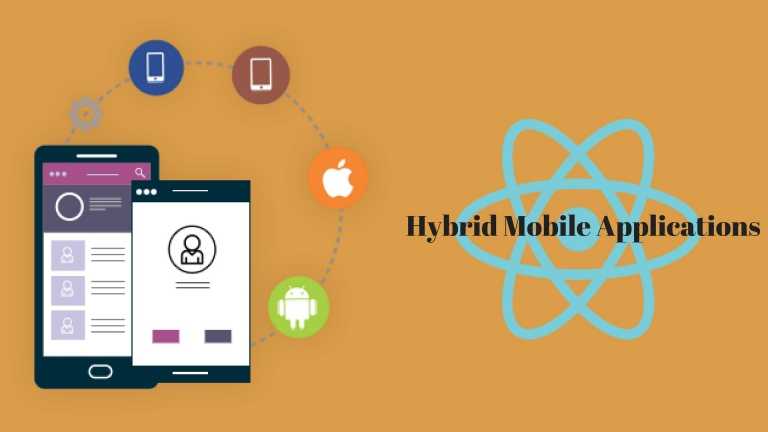
This blog is to present a comparison between some of the popularly used JavaScript frameworks for developing hybrid applications. Most of these enlisted frameworks run unmodified application programs for cross platforms. Besides the usage of Adobe PhoneGap or Cordova along with these can facilitate the bridging of device API’s in Javascript.
1. Ionic:
Ionic is considered to be one of the most popular frameworks. Nowadays, it’s been the most preferred framework, being almost the primitive choice for many developers. Using Ionic can easily help in the creation of native designs just through the CSS portion of the framework. Yet a simple collaboration with AngularJS is sufficient to harness its full potential. Besides it also offers a command line interface representing some awesome features, which can be further be integrated.
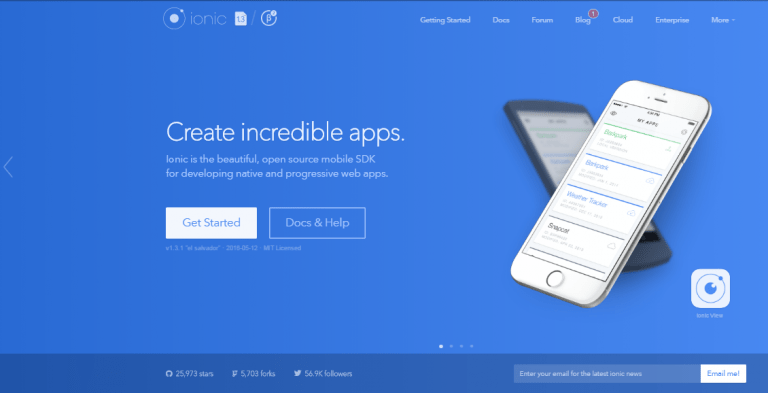
Advantages:
- Performs great with predefined components.
- Compatible with Cordova-based application packages.
- A supreme command-line interface with useful features.
2. Framework 7:
The most utilizable fact about Framework 7 is that it doesn’t possess any external dependencies like Angular or React. Besides being completely framework skeptic, it manages to maintain the look and feel of native apps. To get the most out of it requires properly styled components and animations. Anyone having sufficient knowledge in CSS, HTML, and JavaScript can create apps using Framework7 without code undulation. However, it lacks tools for emulation and app packaging.
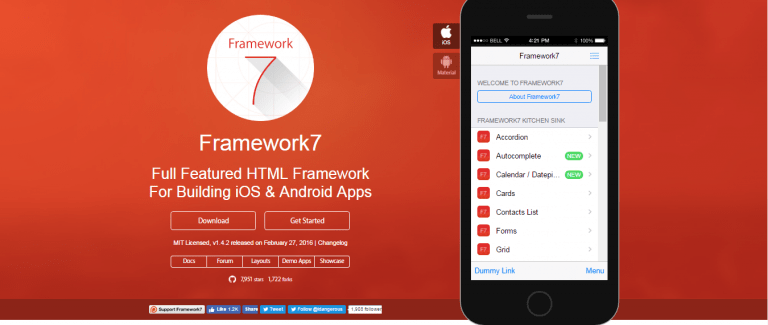
Advantages:
- Simplified usage.
- Relies mostly on JavaScript, HTML & CSS.
- Reliable performance.
- Faster combinations with any kind of JavaScript framework.
3. Onsen UI:
The Onsen UI is an open source framework that permits developers to build apps by combining native looking components. Its usage is fairly simple as it can work with or without Angular JS. Consists of a great documentation inclusive of all possible sample prototypes and layouts for the most common application structures.
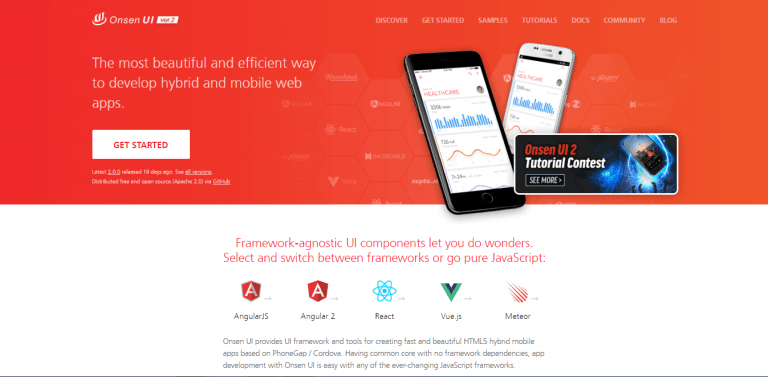
Advantages:
- Excellent Documentation with extensive sample prototypes.
- Supports PhoneGap & Cordova although builder not included.
- Works effectively with predefined components.
4. JQuery mobile:
jQuery being the forefather of all available mobile frameworks, hardly tries to create apps having the likes of those being used in iOS and Androids. Instead, it focuses on developing apps that work equally good on all mobile browsers. This also includes older versions like Blackberry, Symbian, Windows phone. It is light weight, depends mostly on jQuery, hence easier to learn.
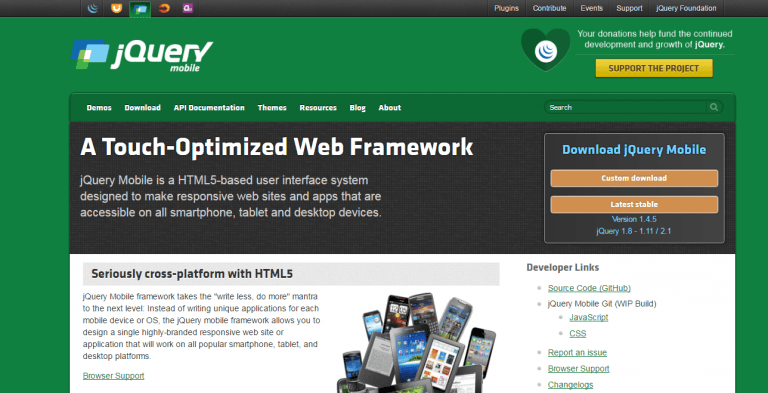
Advantages:
- Presents a better support for a wider range for mobile browsers.
- Simplified and userfrienldy.
5. React Native:
Going by its name React native serves the purpose of building proper native apps, instead of creating hybrid ones, that run in a web view. However, most of the development portion is done via JavaScript and React. This framework isn’t tailored towards novice in the field of web development but certainly presents a brighter side. The presence of a huge community clarifies assistance will never be the problem. And with recent upgradations this framework even supports Android. Thus having real cross platform apps is no big deal.
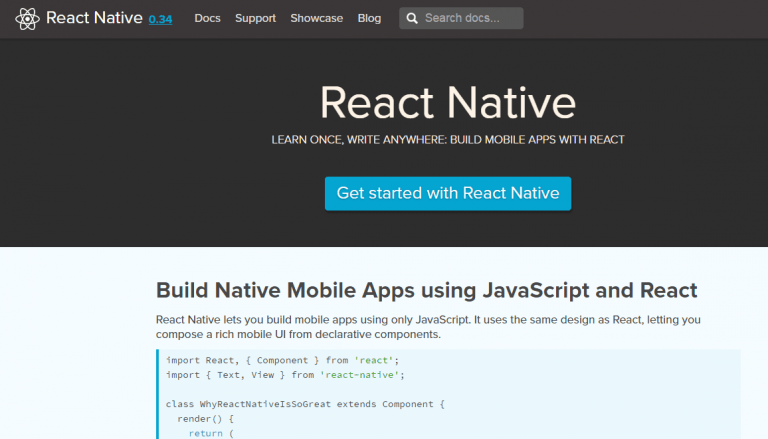
Advantages:
- Native-like performance.
- Vast community.
Closure:
Nothing in this world is fully compatible or entirely flawless. Similarly, every framework consists of certain cons, just like its has pros. So while making a choice be clear of its usage. In that manner, you will also be able to implement it in the right way.
Hopefully, this blog will be of great usage to you. Furthermore to keep an eye on more exciting and informative blogs you can follow us. It would be considerably grateful if you share your experience with something relevant. Kindly share your opinion by leaving a comment.



